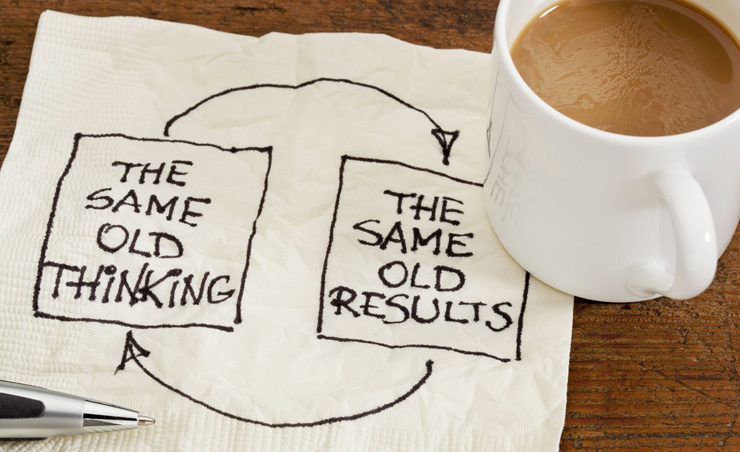“Before you are ready to learn, you must first unlearn.” The billionaire said to me.
“But I came here to learn! Why do you want me to forget everything I’ve already been taught!?” I thought to myself.
A lot of the things he was saying contradicted everything I was told to be true growing up, but one thing is for certain: This guy is already living the type of life I want to live, so I should listen to what he says without question.
First Principles Thinking
The first lesson on my journey came not from that millionaire I was driving to meet for lunch in Scottsdale. Instead, I heard the guiding principles of billionaire entrepreneur and investor, Elon Musk, when he began speaking about a rule in physics called First Principles.
When Elon Musk speaks, people listen.
Not only is he the cofounder of Paypal, Tesla Motors, Solar City, and SpaceX, but he is also the man who is saving the planet, and turning humans into an interplanetary species by colonizing Mars.
Yes, he is actually doing that.
First Principles states that instead of basing what you do off of the way most people do things and the way things have always been in the past, you must first unlearn (what you thought to be true), begin from the most fundamental truths of the universe, and then work your way up from there.
Thinking like a Billionaire
“It’s important to reason from first principles, rather than by analogy.” Elon began, “The normal way we conduct our lives is we reason by analogy. We are doing this because… it’s like something else that was (already) done. Or it’s like… what other people are doing.”
In the late 1800’s, if you asked anybody how to travel faster, they would reason by analogy and tell you to find a faster horse.
Before the automobile was invented, people lived in a reality where they couldn’t believe the future would be that much different than the way things have always been in their past.
They accepted the way things are now as the way things will always be, and this kind of thinking has done nothing except limit what their future holds for them and it holds them stuck in the reality they’ve been living in.
When most people try to move forward in their lives, they make slight adjustments from the way things have always been done, and mimic the way most other people do things.
But what if they applied first principles thinking to their life?
What if they stopped doing things the way they’ve been doing them in the past and started walking a new path? Doing so might seem harder at first, but it’s the only way to reach uncharted territory, and begin to live a life they once thought to be impossible.
Would that kind of life be worth it?
Elon accredited first principles thinking for some of his most profound accomplishments in life.
For his space company SpaceX, the Russians quoted him in the tens of millions of dollars for old cold-war era rockets which he would then turn into spaceships. When the finances of the deal didn’t work out for his business, he used first principles thinking to break the rockets down to its most fundamental building blocks (cost of raw materials, assembly, etc.) and began determining the cost of each rocket from the ground up.
After he realized that he could build a rocket for only 2% of the price that any rocket cost to be built in the past, he was awarded a $2 Billion contract from NASA to resupply the space station.
$2 Billion was a nice payday after he put 100% of his $165 million fortune into his new companies, and was forced to borrow money for rent and sleep on his friends’ couches just a couple years earlier.
This is what happens when you break free from the norm, and re-learn the “rules of life” from the most fundamental truths of the universe.
When people were screaming for a more fuel efficient car, he didn’t try to improve upon existing gasoline engines. Instead, he ignored the way everyone else believed to be the only way, and he invested in a company to build a 100% electric engine from the ground up.
This formed the basis for the multi-billion dollar company, Tesla motors.
But first principles thinking doesn’t only apply to large companies and innovations. It applies to the making a breakthrough in your life so you can transform from who you are into who you want to be.
First Principles for Success
Just like most people, I fell into the trap of building a faster horse.
I used to think that my past equals my future, and that I should do things simply because it’s the way most people do them:
- “You’re a ______ and therefore you’ll always be a ________.”
- “Money doesn’t grow on trees.”
- “Nobody does that! You’re crazy if you do that! Everybody else does it like THIS…”
- “Successful people came from some type of privilege, or they just got lucky.”
- “If you want to make more money, go back to school.”
It was that last one that finally woke me up. When I graduated college into a recession and couldn’t get a job, the only way I thought I could make more money was to get my Master’s degree, because that is what everyone else is doing (this was me arguing from analogy, not first principles).
When I finally was awarded my advanced degree, the jobs I once was under-qualified for, I’m now “overqualified” for.
Quite paradoxical, isn’t it?
Translation: I was left unemployed and broke, single and alone, when I did things the way I was supposed to do things.
Reasoning by analogy does not create major breakthroughs in your life. First principles thinking does.
The best part about first principles thinking is that your starting point on your journey doesn’t matter. In fact, I would argue that the worse off you have it in the beginning, the greater the breakthrough you will experience on your journey. And those people who started from the bottom are the very ones who have what it takes to make it back up again if they fail.
Do you ever notice that those rock bottoms in life, where things seem like they can’t get any worse, are the very moments that propel you in search for a new way of doing things? Things get so bad that you have to find another way.
Now, when I meet people on my journey and they tell me how bad they have it, I let them know how excited I am for them!
I say to them “This emotion you’re feeling right now, whether it is rock bottom or simply feeling stuck and wanting more…is the very thing that is pushing you to search for a change in your life. One day you’ll look back and realize that this may have very well been one of the best things that has ever happened to you.”
It’s a lot to digest when you’re going through the struggles, but it’s true.
The time is now to apply first principles to your life, today.
You are here today because you’re now ready to start walking the path to the life you could only dream of. You are reading this now because you’re ready to realize that your future will soon be drastically different than your past, and that means you now know the way you’ve been taught to do things in the past will only get you the results you’ve gotten up until this point.
You don’t want a faster horse. You want to step on the accelerator to success.
This first principles approach to doing things differently than the mainstream way of thinking is where your self-made success begins.
What if you let go of the old and begin this journey with a clean slate?
When most people try to learn what it takes to become successful, they skip the unlearning process and begin their journey trying to learn something new.
You can’t grab hold of the new, without first letting go of the old.
The next step is to apply the guiding principles of multi-billionaire, Elon Musk, to your journey, let go of the old life, and begin from the ground up with the first principles of success.




